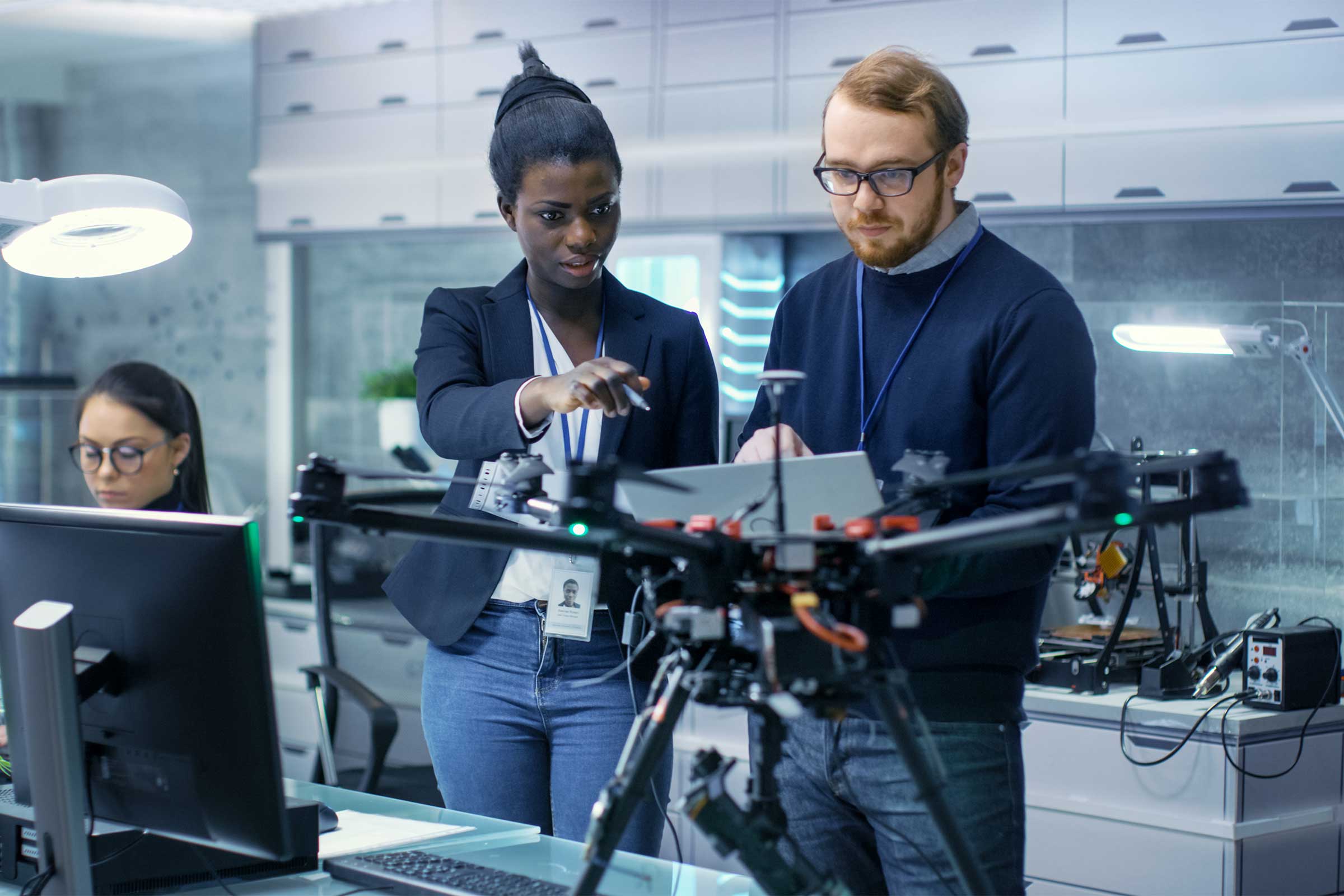The most in-demand employability skills today are the ones only humans can do. Why? Well, it’s due to the ‘augmentation of the workforce’. In case you’re wondering what that phrase means, it refers to humans and machines working on tasks side by side.
Technology is displacing some traditional roles in the workplace. However, the flipside is that augmentation of the workforce is creating exciting new opportunities too. Upskilling will allow you to position yourself to thrive in this brave new world. Here’s why developing human skills will help you secure your future.
Human-centric skills in the fourth industrial revolution
To augment something means to make it larger, stronger or more effective by adding something to it.
The addition of technology to our workforce has greatly increased productivity by automating repetitive tasks. Think robotics in factory production lines. Computer algorithms calculating mathematical equations. Chatbots answering enquiries on websites.
Technology is advancing so rapidly we’re considered to be in a fourth industrial revolution. Moreover, artificial intelligence and machine learning will only continue to develop.
To thrive, you’ll need to increase your expertise in areas that can’t be done by machines or that complement the use of technology in the workforce.
Machines lack the shared social experiences we acquire through our interactions with others. So it’s only humans that have certain employability skills, like:
- active listening and empathy
- creative thinking and problem-solving
- critical thinking
- social perceptiveness
- cognitive reflection.
These are uniquely human abilities. And if you develop these human-centric skills, you’ll help secure your future in an augmented workforce.
Benefits of an augmented workforce
While the nature of the work we do will change, the World Economic Forum has predicted that technological advancements will mean more jobs are created than displaced by automation.
The augmentation of the workforce will provide a breadth of opportunity – for those willing to embrace the future. For instance, working with and evolving technologies like artificial intelligence, machine learning, blockchain and predictive analytics.
If your interest is big data, you could upskill with Charles Sturt’s Graduate Certificate in Applied Data Science. As a result, you could move into analysing, interpreting and taking action on the data your company collects. Furthermore, you could get started over summer with a single subject – ITC516 Data Mining and Visualisation for Business Intelligence. Then within a few months you could have a new qualification in an in-demand area.
Whatever industry you work in, the augmented workforce will mean your repetitive tasks are increasingly automated. As a result, you’ll be freed up to do more interesting, value-adding work. In other words, the jobs that only humans can do – like managing projects and managing people. So let’s look at the employability skills you need to start upskilling in.
Upskill in these employability skills
Each year LinkedIn Learning identifies the skills companies need most. In their 2020 Workplace Learning Report the hard skills were dominated by analytical and data-centred skills, along with digital skills (no surprises there). Whereas the most in-demand soft skills were:
- creativity
- persuasion
- collaboration
- adaptability
- emotional intelligence.
Why are these employability skills important in an increasingly augmented workforce? It’s because they are skills that machines can’t do.
Creativity – Computers can’t come up with original ideas and without an imagination they can’t solve unusual problems. Consequently, if you can generate ideas, come up with alternatives, conceive of possibilities – there’ll always be a place for you in the world.
Persuasion – Machines don’t have the capacity to convince people to change an attitude or behaviour or take a particular course of action. If you hone your communication skills so you can effectively negotiate, motivate and emotionally engage an audience, you’ll have some of the most powerful soft skills around.
Collaboration – Collaboration involves exploring and generating new ideas, bringing together different expertise and working to achieve a common purpose. Develop the ability to bring teams together – potentially from across the globe and almost certainly from remote work locations – and the world will be your oyster.
Adaptability – In a world where the only constant is change, adaptability is key. As a result, if you can quickly adjust to new technology, new team members, new work arrangements and whatever else life throws at you, you’ll be right at home in the augmented workforce.
Emotional intelligence – Self-awareness, self-regulation and the capacity to read human interactions is essential for success as a leader. For this reason, whatever else computers might learn to do, they won’t be great leaders.
Ongoing skill development in human-centric skills will help provide you with a fulfilling and sustainable career. At Charles Sturt, we’re so sure of this, we’ve embedded soft skills into all our courses. So whatever you study with us, you’ll be building your employability skills at the same time.
Start upskilling now
Upskilling doesn’t have to mean a large investment of time or money. You could secure a graduate certificate in just six months of study. Go on, get started now – and be in demand.

